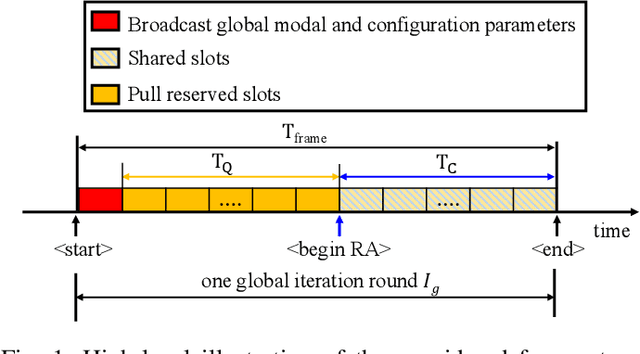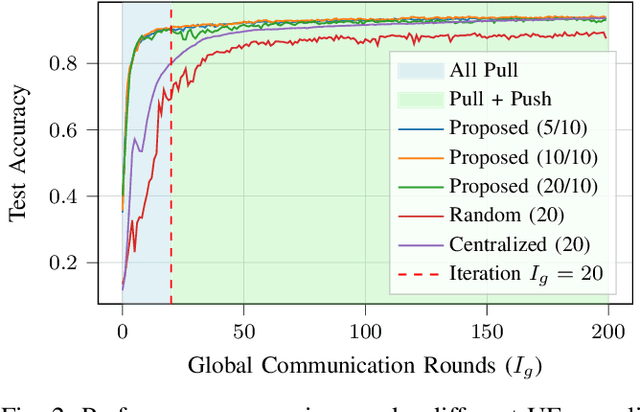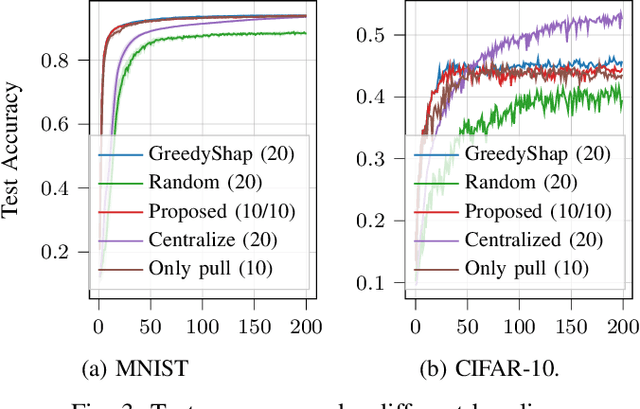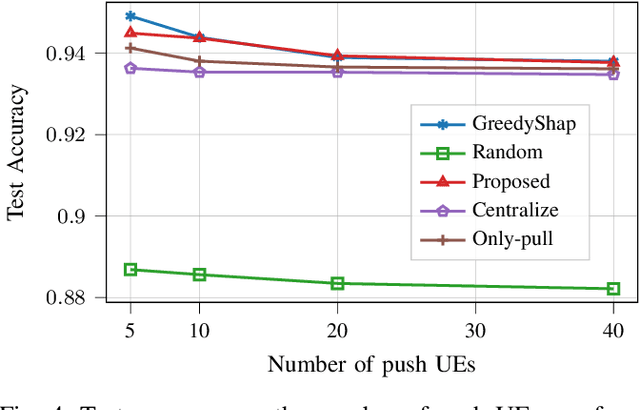Time-constrained Federated Learning (FL) in Push-Pull IoT Wireless Access
Paper and Code
Nov 13, 2024



Training a high-quality Federated Learning (FL) model at the network edge is challenged by limited transmission resources. Although various device scheduling strategies have been proposed, it remains unclear how scheduling decisions affect the FL model performance under temporal constraints. This is pronounced when the wireless medium is shared to enable the participation of heterogeneous Internet of Things (IoT) devices with distinct communication modes: (1) a scheduling (pull) scheme, that selects devices with valuable updates, and (2) random access (push), in which interested devices transmit model parameters. The motivation for pushing data is the improved representation of own data distribution within the trained FL model and thereby better generalization. The scheduling strategy affects the transmission opportunities for push-based communication during the access phase, extending the number of communication rounds required for model convergence. This work investigates the interplay of push-pull interactions in a time-constrained FL setting, where the communication opportunities are finite, with a utility-based analytical model. Using real-world datasets, we provide a performance tradeoff analysis that validates the significance of strategic device scheduling under push-pull wireless access for several practical settings. The simulation results elucidate the impact of the device sampling strategy on learning efficiency under timing constraints.
 Add to Chrome
Add to Chrome Add to Firefox
Add to Firefox Add to Edge
Add to Edge